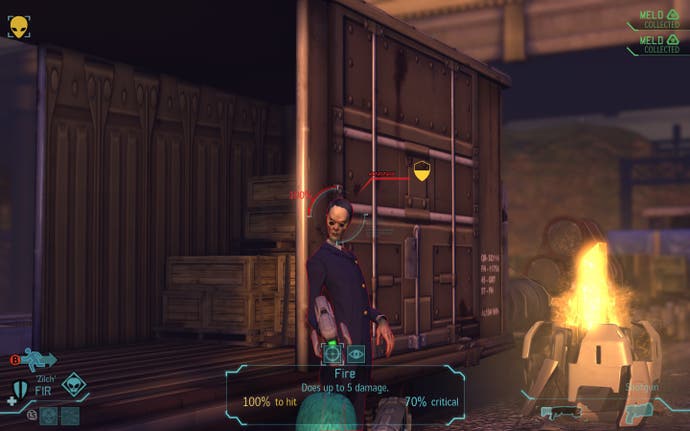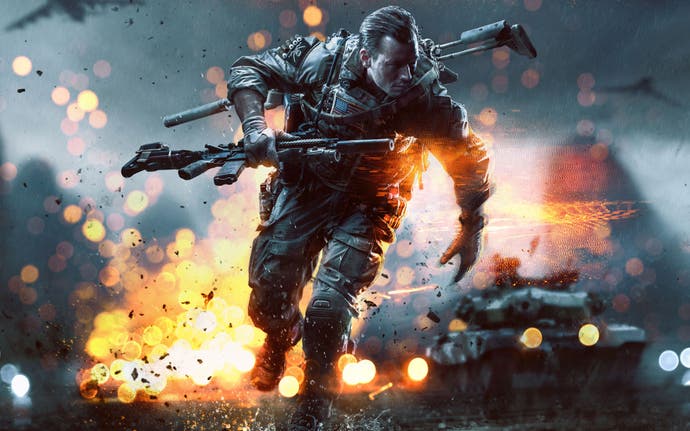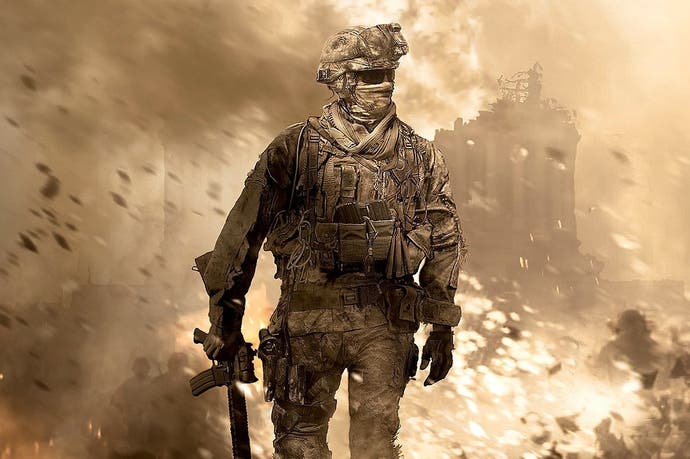Hooah! When games speak like soldiers, are they missing part of the message?
We're all Oscar Mike.
When the novelist Thomas Pynchon spent a few years in the US Navy in the 1950s, he noticed something strange happening to the men he served with. "I had noticed how in the military voices got homogenized into one basic American country voice," he writes in the autobiographical essay that accompanies Slow Learner, his collection of early stories. "Italian street kids from New York started to sound like down-home folks after a while, sailors from Georgia came back off leave complaining that nobody could understand them because they talked like Yankees." Pynchon refers to this phenomenon as the creation of a "uniform service accent", and I found myself thinking about that at Brighton train station over the weekend. I was in the queue for the coffee stand, and I heard a man ahead of me telling his friend on the phone that he was "Oscar Mike".
Maybe this sort of thing isn't new, but it feels like it's been happening a lot more often of late. A few years back, I actually had to look up the phrase Oscar Mike because, with the release of one or another of the Call of Duty games, everyone I knew had started using it. Then, months later, Firaxis' brilliant XCOM reboot was on the up, and everyone was suddenly saying, "solid copy" instead. I was saying it too - and in situations that had little to do with combat. Kids often parrot army stuff from comics and old movies, but I wasn't a kid anymore, and neither were my friends. Yet when my wife asked me to make a cup of tea, I'd reply just as a US Ranger might if sent on deadly recon. When someone told me to get out of the way of the telly so they could watch Chopped - it's always Chopped - I'd offer a cheery "Roger dodger!" Rodger dodger, Oscar Mike - where did we pick this stuff up?
TV and films still play their role, I suspect, but video games seem to be an increasingly influential disseminator of US military slang. Video games love soldiering almost as much as kids do, and they also put you right into the LZ, as non-soldier friends of mine would be ever more likely to call it. Video games are just so direct and so enveloping: it's your virtual life on the virtual line. Military slang, meanwhile, is catchy and addictive. These days it often seems that we're all Oscar Mike. Maybe the "uniform service accent" has moved beyond inflection, beyond pronunciation, and way beyond the service that spawned it. Civilians - grown-up civilians who no longer have pretend shoot-outs in the playground - have started to gently absorb this stuff, and that includes the lingo, too.
This should probably not come as a massive surprise. For one thing, military terminology gets straight to the point. It's a brazenly useful vocabulary, and it's always nice for language to be useful. Beyond that, soldier slang is the hot dog mustard of linguistics - tangy and vibrant and winningly unpretentious. It's more fun to bark "solid copy," when being ordered to rustle up a cup of Lady Grey and a Viennese Whirl than to reply in the usual prosaic ways. It lifts you out of your prosaic life for the second or so it takes to say it. (Also, you can add, "Wouldn't you prefer a solid coffee?" and then laugh to yourself like an idiot.)

It makes sense for games, too, since it doesn't just boost authenticity - and how else are you going to have soldiers communicate, anyway? - it also guards against the old repetition problem. You might call it the uncanny valley of chat. With most production budgets, there's rarely the time and money to give everyone in the cast enough things to say to keep the audio track in the eighth hour of the campaign as exciting and fresh as it was in the first. Stock terminology gets past all that. You never ask why your XCOM soldier is saying the same handful of things over and over again, because he or she is a soldier, so repetition sort of goes with the territory.
Even so, the steady creep of military terminology out of the battlefield and into the peaceful world of brewing hot beverages, changing the channel, and taking the bike for a spin does make me feel a bit weird sometimes. (It may also annoy the hell out of anyone who's actually been in uniform, I suspect.) Warzones are places where people suffer, after all. Beyond that, in an Edge column, Steven Poole has written about what he calls games' national-security ideology - of the US policies that are often "uncritically internalized in so many video games today" as designers seek to make things more authentic while they send you into compounds in foreign lands, rifles ready and night-vision goggles humming in the darkness. Heading to the kitchen with a jaunty cry of, "message received!" might not seem like it has much to do with Splinter Cell's seemingly unthinking co-opting of enhanced interrogation techniques, but perhaps it's not entirely unrelated.

And, after reading up on a few of these phrases I've sometimes found myself using over the last few years, I sense a missed opportunity for games, one that comes down to that idea of things being uncritically - or at least unquestioningly - internalized. Many modern warfare games use military terminology with a kind of cinematic flair - some of them really seem to flaunt the stuff - but I'm starting to get the impression that they also lose a lot of the nuance that originally went with it. Unwittingly, they miss the human element, and that's where it can start to feel odd. They flatten and they simplify and that does everyone a disservice. Famous sequences aside, it's a rare soldiering game that's as consistently interested in the actual soldiers as it is the hardware they use, no matter how good the intentions.
As an example, last night I was delighted to discover that the phrase "Hooah" has its own Wikipedia page - and it makes for some fascinating reading, too. Hooah (which I now gather may or may not have come from HUA, standing for Heard, Understood, and Acknowledged) generally turns up in games and TV and film as a blunt affirmation of army obedience and enthusiasm. In truth, though - at least the truth delivered by Wikipedia to a man who writes about video games for a living and has never served in anything in his life - Hooah seems to be a surprisingly plastic term, and often an ambiguous one. It's slang "referring to or meaning anything and everything except no" according to the article I read. That includes solid copy, roger dodger, and even thank you, granted, but it also includes "You're wrong, but you outrank me", "Did not hear what was said, but not going to ask to repeat", and HUAW - Hurry Up and Wait. Suddenly, you get to the frustrations of being a soldier, the tension that comes with endless waiting around and following orders that can sometimes seem stupid.
Hooah (and this is perhaps true for other pre-packaged military phrases like it) is language pulled from a world where language doesn't quite cut it, in other words - maybe because, as books like Catch-22 and 1984 point out, official language is so often perversely employed to limit and obscure. Or maybe it's because the reality of a given wartime situation is so intense and distressing that nothing covers it. Or because saying what you actually mean is not permissible in the ranks. In missing this side of things in the kind of stories they frequently choose to tell - although for sure, the odd game like Spec Ops: The Line tries, in its patently artificial way, to go a little deeper with its depiction of warfare and its effects on any people caught up in it - military games are also missing some of the more interesting, not to mention humanising, complexities and contradictions of the characters and situations they examine.

